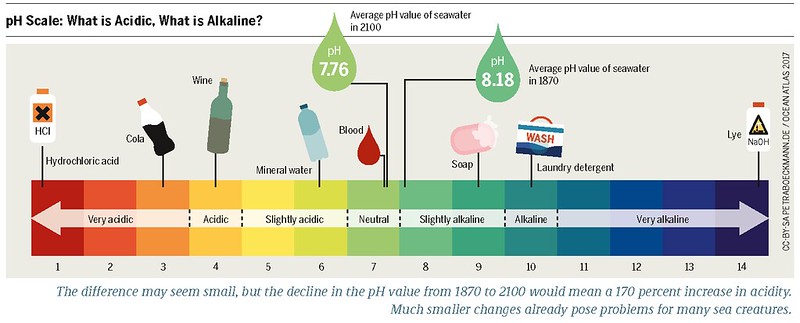The pH level of water used for coffee brewing is a crucial factor that can significantly impact the taste and quality of the final cup of coffee. Coffee’s pH value typically falls between 4.85 and 5.13, making it slightly acidic. This acidity contributes to the flavor profile of coffee, but it can also cause gastrointestinal symptoms for some individuals. Understanding the ideal pH range for water used in coffee brewing and how to adjust it can help ensure a consistently delicious and enjoyable coffee experience.
Understanding the pH Scale
The pH scale is a measure of how acidic or basic a substance is, with 7 being neutral, less than 7 being acidic, and greater than 7 being basic. The ideal pH range for water used in coffee brewing is between 6.5 and 7.5. This range ensures that the water is not too acidic or too alkaline, which could negatively affect the taste of the coffee.
Factors Affecting the pH of Water
Several factors can influence the pH level of water used for coffee brewing:
-
Contaminants and Chemicals: Substances like chlorine, which is often added to public water supplies to kill bacteria, can lower the pH level. Conversely, minerals like calcium and magnesium, which are common in hard water, can raise the pH level.
-
Hard Water vs. Soft Water: Hard water, with its high mineral content, tends to have a higher pH level, while soft water, with fewer minerals, often has a lower pH level.
-
Scale Formation: High levels of minerals in the water can lead to the formation of scale in coffee equipment, which can negatively impact the taste of the coffee.
Adjusting the pH of Water for Coffee Brewing
To ensure the optimal pH level for coffee brewing, consider the following strategies:
Using a Water Filter
Investing in a water filter that removes chlorine and other contaminants while maintaining an appropriate pH level can be a game-changer. Look for filters that are specifically designed to address the unique needs of coffee brewing.
Descaling Coffee Equipment
Regular descaling of coffee equipment, such as espresso machines and coffee makers, can help prevent the buildup of minerals that can affect the pH level and taste of the coffee.
Adding Baking Soda
As a home remedy, adding a small amount of baking soda to water can raise the pH level, making it less acidic. Start with 1/8 teaspoon of baking soda per gallon of water and test the pH level using a pH test strip.
The Importance of Consistent pH Levels
Maintaining consistent pH levels in the water used for coffee brewing is crucial for achieving a balanced and flavorful cup of coffee. Inconsistent pH levels can lead to:
- Unbalanced Flavor: If the water is too acidic or too alkaline, it can result in a coffee that tastes sour, bitter, or flat.
- Extraction Issues: The pH level can affect the extraction process, leading to over-extraction or under-extraction of the coffee’s compounds.
- Equipment Damage: Extreme pH levels can cause corrosion or scaling in coffee equipment, shortening its lifespan.
Conclusion
The pH level of water used for coffee brewing is a critical factor that can make or break the taste of your coffee. By understanding the ideal pH range, identifying the factors that can affect it, and implementing strategies to maintain consistent pH levels, you can ensure a consistently delicious and enjoyable coffee experience. Remember, a little attention to the pH of your water can go a long way in elevating your coffee game.

